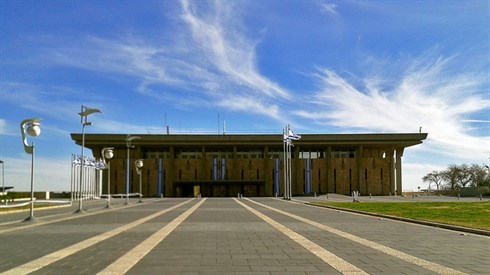- Family and Society
- Attitude Towards Secular and Reform Jews
445
Question
In the Mizrachi community we have many Jews who dont keep shabbat but still come to Beit Knesset every Friday night and Saturday too. This keeps them at least connected to Judaism rather than running away from it as things are not black & white. My question is can those Jews, who dont keep shabbat but who still do as much as they can to remain connected to Judaism, make aliyah to the sefer Torah? I know that in the halacha they cant but surely them having an aliyah has some positive impact on their soul and heart to make them want to eventually keep shabbat, same as they can be a shaliach tzibur as its assumed their souls yearns for it. By preventing those Jews from doing what every Jew is entitled to do only pushes them away from Judaism if we dont allow them to make aliyah to the sefer Torah. Most of the senior very religious and very educated in halacha members of our Beit Knesset agree with my statement above but our newly recruited Haredi rabbi says the opposite and has upset the community enough that it could mean he has now pushed some Jews away by offending them. Can you please elaborate in this situation? Thanks
Answer
Shalom,
Thank you for your question. I'm not certain that you will be happy with my answer – but allow me to explain. We try, as much as possible, on this site to avoid getting involved in local disputes, especially those between a Rabbi and his congregation. Whilst you present good arguments for your position, without being there, and knowing the facts on the ground, it would be inappropriate to “take sides”. On the other hand, we do know that a local Rabbi has religious authority over his synagogue, and it is his choice, and obligation, to rule on local issues. Because of this, we must refrain from “mixing in” and offering a ruling when the local Rabbi has already ruled.
However, let me point out that honoring your Rabbi is certainly a mitzvah. Being angry at him, and all the more so, talking badly about him (- both of which I am sure you are careful to avoid), are certainly big sins. May I suggest something that might help all concerned? Perhaps you should take this opportunity to get closer to the new Rabbi, and to understand his ruling better. You could approach him politely and ask if he could find time to sit down with you and learn the issue in greater depth together, and for him to explain to you his ruling. Without attempting to convince him of your opinion, but with an honest desire to understand why he rules the way he does, I am sure that you will feel better and more understanding of the Rabbi who is to lead your synagogue in the future.
I have no doubt that the Rabbi is well aware of those who rule leniently on this question, and that he must have reached an understanding that his stricter ruling will in the long run be the best thing for your community, in their particular situation (which I stress I am not familiar with, and cannot express an opinion about).
Feel free to show this response to your Rabbi, and use it as an opening for a open, friendly, and educational conversation with him about the issue.
May you, the Rabbi and your whole community be blessed with much peace and Torah.

tinok shinoshba
Rabbi David Sperling | Nisan 2, 5782

the tinok shinoshbas today
Rabbi Ari Shvat | Sivan 9, 5782

Referring to a non-Orthodox religious leader as "Rabbi"
Rabbi Jonathan Blass | 1 Sivan 5766

Follow up- the secular court system of Israel
Rabbi Ari Shvat | Tammuz 13, 5781

When does my kaddish end
Rabbi David Sperling | Tammuz 8, 5771

Shaving for Yom Haatzmaut
Rabbi Yoel Lieberman | Nisan 24, 5770

Washing Parve Utensils in a Meaty Dishwasher
Rabbi Jonathan Blass | 7 Tishrei 5764

Don’t worry be happy!
Rabbi David Samson | 28 Elul 5762

Which Prophets did Israel kill?
Rabbi Ari Shvat | Adar 25, 5785
Separate beds while niddah
Rabbi Gideon Weitzman | Nisan 13, 5785

Bedikat chametz
Rabbi David Sperling | Nisan 11, 5785




